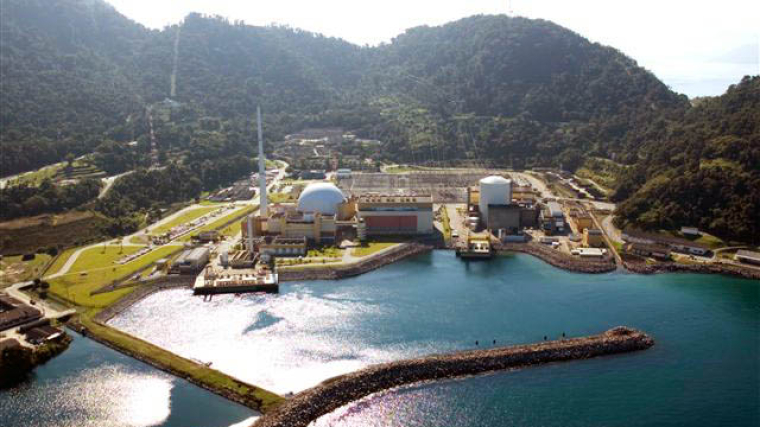Company – On record
This profile is no longer actively maintained, with the information now possibly out of dateBankTrack

Company – On record
This profile is no longer actively maintained, with the information now possibly out of dateBankTrack
| Sectors | Mining, Nuclear Electric Power Generation |
| Headquarters |
|
| Ownership |
As of December 31, 2008, the French State hold, directly or indirectly, more than 90% of the shares issued by AREVA and more than 94% of its voting rights. |
| Subsidiaries |
|
| Website | https://www.orano.group/en/orano-home |
Created in 2001 and 90% owned by the French
state, this multinational conglomerate boasts of interests in every aspect of
nuclear power from uranium mining to nuclear fuel production, reactor building and
decommissioning, and nuclear waste reprocessing and storage. AREVA has manufacturing facilities in 43 countries and a
sales network in more than 100. It has designed 102 of the reactors operating
or under construction worldwide. AREVA employs 75,000 people.
Social and human rights impacts
In May 2012, a French court ruled that AREVA had made an "inexcusable mistake" regarding a former employee's death from lung cancer. The employee worked for seven years at a mine operated by Cominak, an AREVA subsidiary in Akokan, regularly inhaling uranium dust without adequate protective gear. The court ordered AREVA to pay €200,000 in damages to the employee's family.
For 40 years, Comuf, an AREVA subsidiary, mined uranium in Mounana, southern Gabon. Scores of former Gabonese and French miners have consequently died. Nearby residents have also suffered from life-threatening illnesses. Though operations at the Mounana mine were halted in 1999, a study commissioned by the European Parliament in 2010 acknowledged that "past mining activities continue to pose health risks to the local population and environment." AREVA, amidst pressure from civil society to remedy the enduring public health hazards, launched a health and compensation initiative in 2010. However, the program failed to meet the needs of the local population, prompting NGOs to terminate their cooperation with AREVA saying, "[...] AREVA management had reduced the implementation of agreements to a publicity campaign." Criticisms of the program included compensations given only to families of French workers, overlooking local miners. Furthermore, AREVA's attempt at site cleanup was inadequate and poorly executed. Locals continue to be exposed to toxic levels of radiation. Despite its unfinished business, AREVA has launched exploration campaigns in Gabon to renew its uranium mining operations in the country.
Environmental and climate impacts
Jaitapur, where Areva plans to built a nuclear power plant, is located in a seismically sensitive area classified as a Moderate Damage Risk Zone (Zone III). The Geological Survey of India reported over 92 earthquakes in this region between 1985 and 2005, the strongest of which registered a 6.2 on the Richter scale. People living in and around the reactor site fiercely oppose the project. In April 2011, local police killed one protester and injured several others while attempting to subdue a disgruntled mob.
The long-term consequences of uranium mining are apparent in Niger. Uranium mining has been prevalent in Niger for over 40 years. According to Greenpeace's 2010 report, water, air, and soil contamination levels in the mining towns of Arlit and Akokan exceed international limits. Furthermore, sludge produced through AREVA's operations was haphazardly dumped into large piles allowing radioactive dust and radon gas to seep into the open air.

